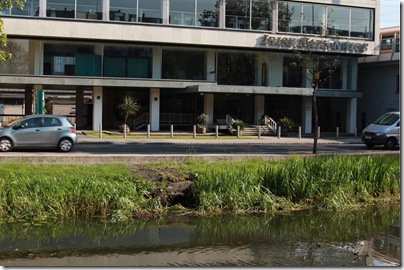 The report that Senator Ivor Callely has been paid over €80,000 since 2007 in respect of travel expenses from an address in West Cork to Leinster House is extraordinary, bizarre and one more example of the self-serving, greedy, behaviour that vexes voters' so intensely that it cost Peter Robinson and many other outgoing MP's their parliamentary seat in the recent British general election.
The report that Senator Ivor Callely has been paid over €80,000 since 2007 in respect of travel expenses from an address in West Cork to Leinster House is extraordinary, bizarre and one more example of the self-serving, greedy, behaviour that vexes voters' so intensely that it cost Peter Robinson and many other outgoing MP's their parliamentary seat in the recent British general election.
This Oireachtas web site lists Callely's home address as being on St Lawrence Rd, Clontarf, Dublin. The public telephone directory lists his telephone number at this address. His name is also listed on the current Register of Electors at this address, which is within walking distance of Leinster House. Callely’s political web site states that he maintains constituency office address on Howth Road and he confirms that he lives in the Dáil constituency of Dublin North-Central. Cork is not mentioned in any context. His role as a Taoiseach's nominee to Seanad Éireann has no connection whatsoever with any town in Ireland.
An individual can only have one domicile, or recognised permanent residence, at a time and the evidence in the public domain indicates that Senator Callely’s chosen domicile is not and has never been in Co. Cork. How could taxpayers' possibly accept these expenses as being reasonable? The system of politicians' expenses must not be exploited for personal financial advantage and there ought to be effective and proportionate sanctions for breaches of rules robustly enforced and administered independently of politicians. It should also provide value for taxpayers' that is not necessarily judged by reference to financial costs alone.
Senator Callely needs to understand that the Celtic Tiger party ended in 2007 as unemployment soared towards half a million, negative equity tore the heart and soul out of tens of thousands of Irish households while the bulk of those in employment coped with swingeing pay and expense cuts. Will Senator Callely promptly and voluntarily repay this €80,000 which, it would seem, should never have been paid had the controls of the Oireachtas Commission been sufficiently robust and vigilant, or will the Oireachtas Commission be obliged to engage in an adversarial protracted process to extract repayment from him?
Is it also not time for all politicians' expenses to be routinely published each quarter by the Oireachtas Commission to demonstrate some modicum of transparency, equity and good practice, especially with respect to compliance? It should not be necessary to rely on the Freedom of Information Act to obtain such basic data. Publication would fulfil a core component of the Commission's mission, the promotion of public understanding of the work of parliament and the cost of providing what it describes as "a world-class parliament". The operating cost of our 226-member Dáil and Seanad was almost €153 million in 2008. The salaries and expenses of 650 members' of the Westminster Parliament for the same period was slightly over €197 million.
If the Oireachtas Commission fails to rectify this matter then, presumably, a precedent is set whereby each member of the Oireachtas and every public sector worker can acquire an accommodation address as remote from Dublin, or the location of their employment, as possible for the purpose of maximising the amount of money that can be gouged from the public purse. This might have the effect of repopulating the islands from Tory to Cape Clear but it would also leave the bond holders who pay the day-to-day expenses of running the country incandescent, perplexed and likely to confuse Ireland with Greece.










